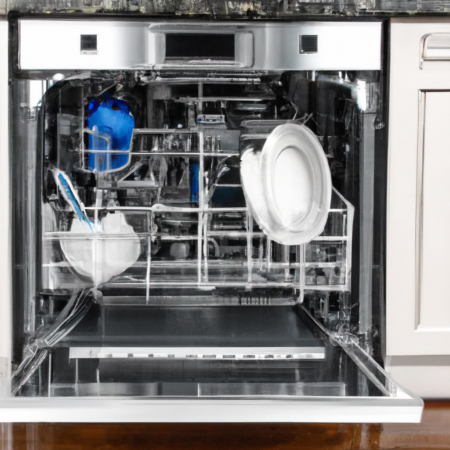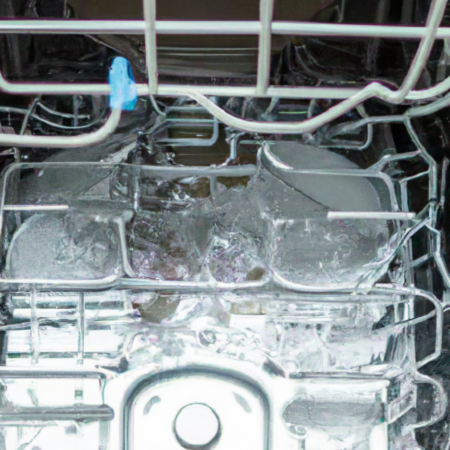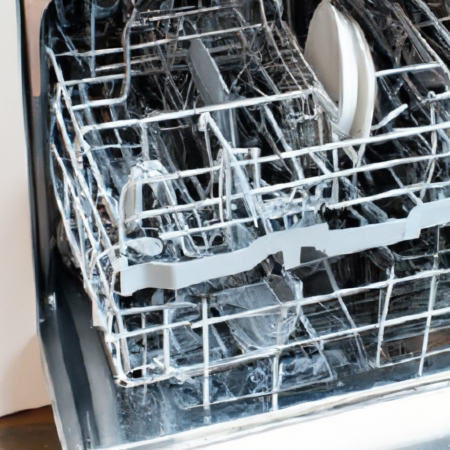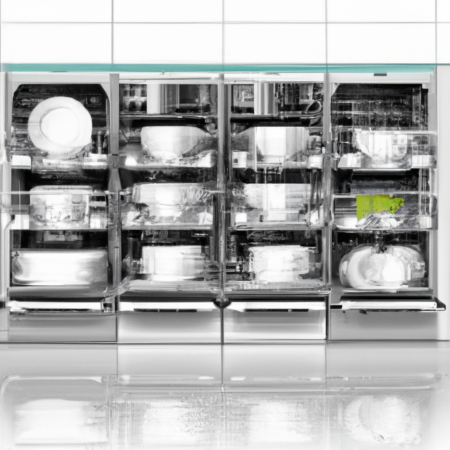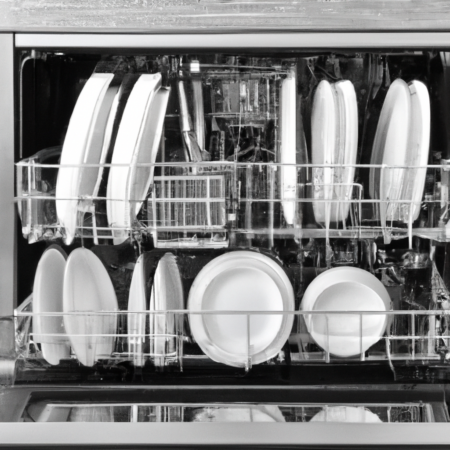Dishwashers are an essential appliance in many households, providing a convenient and efficient way to clean dirty dishes. However, some people may be confused about how long dishwashers run and what the various cycle times mean. In this article, we will dive into the topic of dishwasher cycle times, providing a comprehensive understanding of how long dishwashers run and what each cycle time means.
What is a Dishwasher Cycle Time?
A dishwasher cycle time refers to the length of time it takes for a dishwasher to complete one cleaning cycle. Dishwashers typically have several cycle options, each with a different cycle time and level of cleaning intensity. Some common cycle options include normal, heavy duty, quick wash, and eco wash. The cycle time can vary greatly depending on the cycle option selected, with some cycles taking as little as 30 minutes and others taking several hours.
Factors That Affect Dishwasher Cycle Times
There are several factors that can affect the length of a dishwasher cycle. These include the type of cycle selected, the amount of dirt and grime on the dishes, the type of dishes being washed, and the overall efficiency of the dishwasher.
One of the primary factors that affects dishwasher cycle times is the type of cycle selected. For example, a quick wash cycle will typically run for a shorter amount of time than a heavy-duty cycle, which is designed for heavily soiled dishes.
Additionally, the amount of dirt and grime on the dishes can also impact cycle time, as the dishwasher will need to work harder to clean heavily soiled dishes.
The type of dishes being washed can also impact cycle time. For example, plastic dishes tend to clean more quickly than glass dishes, which are more delicate and require more gentle cleaning. The overall efficiency of the dishwasher is another important factor, as more efficient dishwashers will typically run for shorter cycle times.
How to Choose the Right Dishwasher Cycle Time
When choosing the right dishwasher cycle time, it is important to consider your specific needs and the type of dishes you are washing. For example, if you need to clean a large number of dishes quickly, a quick wash cycle may be the best option. On the other hand, if you have heavily soiled dishes that need a deep clean, a heavy-duty cycle may be a better choice.
It is also important to consider the type of dishes you are washing, as some materials are more delicate and require a gentler cleaning cycle. For example, delicate glassware should not be washed on a heavy-duty cycle, as the high water pressure and intense heat can damage the glass.
Average Dishwasher Cycle Times
The average dishwasher cycle time can vary greatly depending on the specific cycle option selected. However, here are some average cycle times for common cycle options:
- Quick wash cycle: 30 minutes to 1 hour
- Normal cycle: 1 to 2 hours
- Heavy-duty cycle: 2 to 3 hours
- Eco wash cycle: 2 to 3 hours
Tips for Shortening Dishwasher Cycle Times
If you are looking to shorten your dishwasher cycle times, there are several steps you can take. Here are some tips to help you save time and energy while using your dishwasher:
- Load dishes properly: Properly loading your dishwasher can help ensure that dishes are cleaned evenly and efficiently, reducing cycle time.
- Use the right cycle: Selecting the right cycle for your needs can help ensure that your dishwasher runs as efficiently as possible, reducing cycle time.
- Clean dishes before loading: Removing any large food particles from dishes before loading them into the dishwasher can help reduce cycle time, as the dishwasher will not need to work as hard to clean the dishes.
- Use a rinse aid: Using a rinse aid can help improve the efficiency of your dishwasher, reducing cycle time.
- Run full loads: Running full loads of dishes in your dishwasher can help reduce cycle time, as the dishwasher will not need to run as often.
Conclusion
In conclusion, dishwasher cycle times can vary greatly depending on several factors, including the type of cycle selected, the amount of dirt and grime on the dishes, the type of dishes being washed, and the overall efficiency of the dishwasher. Understanding these factors and choosing the right cycle time can help ensure that your dishes are cleaned efficiently and effectively, saving you time and energy in the long run.
Frequently Asked Questions about Dishwasher Cycle Times
How long does a typical dishwasher cycle take?
A typical dishwasher cycle can take anywhere from 30 minutes to 2 hours, depending on the type of cycle selected and the efficiency of the dishwasher.
What factors influence dishwasher cycle time?
Factors that influence dishwasher cycle time include the type of cycle selected, the amount of dirt and grime on the dishes, the type of dishes being washed, and the overall efficiency of the dishwasher.
Can I reduce the cycle time of my dishwasher?
Yes, there are several ways to reduce the cycle time of your dishwasher, including selecting the right cycle, removing large food particles from dishes before loading them, using a rinse aid, and running full loads.
Why does the cycle time vary between different types of cycles on my dishwasher?
The cycle time can vary between different types of cycles because each cycle is designed to clean dishes in a specific way, with varying levels of intensity and duration. For example, a heavy-duty cycle will generally take longer than a quick cycle, as it is designed to clean heavily soiled dishes.
Is it better to run a short cycle or a long cycle on my dishwasher?
The best cycle to run on your dishwasher will depend on the type and amount of dishes being washed, as well as the level of soil on the dishes. Generally, a longer cycle is better for heavily soiled dishes, while a shorter cycle is better for lightly soiled dishes.
Can I change the cycle time on my dishwasher?
Yes, most dishwashers have the ability to adjust the cycle time by selecting a different type of cycle. Check your dishwasher’s manual or control panel for specific instructions on how to adjust the cycle time.
Is it okay to interrupt a dishwasher cycle if I need to add or remove dishes?
It is generally not recommended to interrupt a dishwasher cycle, as this can cause water to leak out of the dishwasher and potentially damage the interior. If you need to add or remove dishes, it is best to wait until the cycle has finished before doing so.










